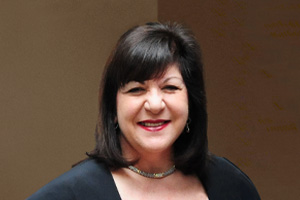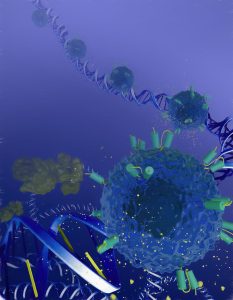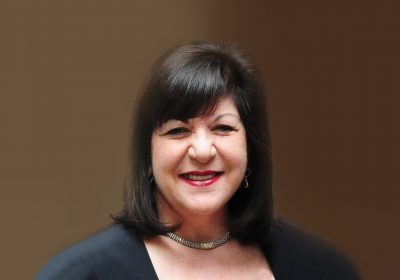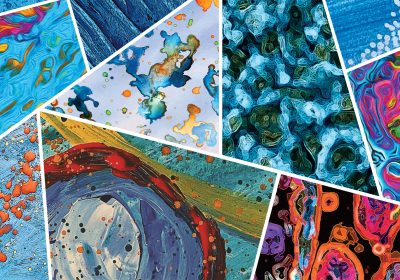
AACR Is Shaping the Future of Cancer Research

AACR Chief Executive Officer
The American Association for Cancer Research® (AACR) is the world’s first and largest professional organization dedicated to advancing cancer research and its mission to prevent and cure all cancers. Among its more than 58,000 members worldwide are the greatest minds in cancer research who make important discoveries leading to breakthroughs in cancer prevention, early detection, diagnosis, and treatment.
But the Nobel laureates and world-renowned scientists who belong to the AACR are only the tip of the iceberg. AACR membership is broad and deep—high school students and college undergraduates, doctoral students and post-doctoral researchers and clinicians, early-career investigators and esteemed laboratory and physician scientists leading their own research programs at major universities and cancer centers in the U.S. and around the world. Our members represent a wide range of disciplines. They are basic, translational, and clinical researchers; population scientists; physical scientists; computational biologists and data scientists; health care professionals, including nurses; and patient advocates. And our large and rapidly growing membership comes from all over the world—one-third reside outside the United States in 138 countries and territories.
To support our rapidly growing and diverse membership and sustain the cancer workforce, the AACR offers a myriad of opportunities for education and training.
– Margaret Foti, PhD, MD (hc)
To support our rapidly increasing and diverse membership and sustain the cancer workforce, the AACR offers a myriad of opportunities for education and training. Each year, the AACR convenes more than 30 conferences and educational workshops, capped off by the AACR Annual Meeting that draws more than 22,000 attendees. Our offerings include 10 prestigious, peer-reviewed scientific journals and a magazine for cancer patients, survivors, and caregivers.
The AACR sponsors and offers research grants to promote diversity in cancer research and enlarge the pool of potential investigators. An example is the collaboration between the AACR and the Lustgarten Foundation to offer two $300,000 career development awards annually in support of pancreatic cancer research, one for a researcher from an underrepresented racial or ethnic group and the other for an investigator who is a woman. These awards are named for the late Representative John Lewis and the late Supreme Court Justice Ruth Bader Ginsburg, respectively. Danielle Engle, PhD, a researcher at the Salk Institute in La Jolla, California, was the first recipient of the award for female investigators in 2021. “Having lost close family members to pancreatic cancer, it has been my dream to start a dedicated pancreatic cancer research lab,” she said. “The Lustgarten-AACR Career Development Award, in honor of Ruth Bader Ginsburg, will enable me to harness my personal and scientific passion to make inroads against this devastating disease.”
The AACR also presents mentoring and career-building workshops for scientists who are early in their careers. These include professional advancement sessions on practical matters such as grant writing, designing a successful career path, setting up a research laboratory, and building an effective mentorship team.
Kathleen W. Scotto, PhD, a cancer researcher and the vice chancellor for research and training at Rutgers University in New Brunswick, New Jersey, credits her mentor and the AACR for helping to advance her research career. “I had a very supportive mentor, which was not that common for women in the late 1970s,” she said. “My adviser took me to my first AACR Annual Meeting, and it was transformative. The opportunity to meet with trailblazers in the field was and still is extraordinary, and I have been involved with the AACR ever since.”
Fifty-four percent of the AACR’s membership are associate members, who are defined as graduate students, medical students and residents, or clinical and postdoctoral fellows enrolled in educational or training programs that could lead to cancer research careers. Four percent of our members are undergraduates or high school students. That means nearly six in 10 of our members are early in their careers and would benefit from support and assistance to complete their training and continue to advance. The risk is that, without support, these brilliant, creative, and enthusiastic members could leave the field for other professions that offer greater opportunities for professional advancement.
As has been the case since our founding in 1907, the AACR stands ready to fill the needs of all our members—whether they be early or late in their careers—with education and training, mentorship opportunities, and financial assistance. By supporting our members and advocating for robust, sustained, and predictable federal funding for cancer research, the AACR plays a vital role in shaping the future of cancer research and building a cancer workforce that is ready to meet our mission of saving lives from cancer.

 Cover Art:
Cover Art:
Dr. Carl June’s pioneering work in the field of immunology has led to the development of engineered cell therapies for cancer, including chimeric antigen receptor (CAR) T cells, and is paving the way for other innovative cancer treatments. Pictured on the cover are CAR T cells targeting cancer cells for eradication. Read more about Dr. June here.
Illustration ©2023 AACR/Claire Agosti





